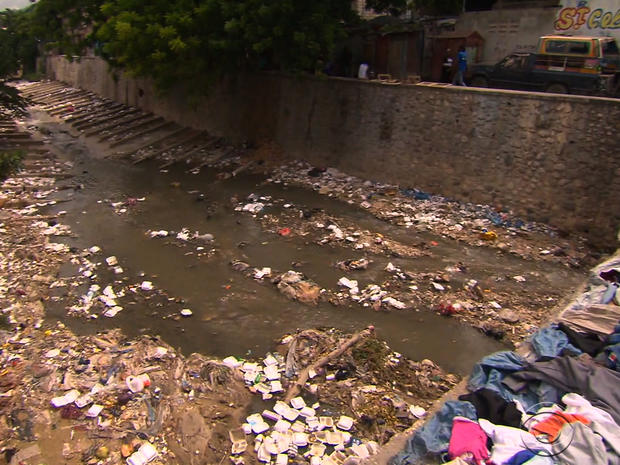Relief group fighting deadly spread of cholera in Haiti
(CBS News) MIREBLAIS, Haiti -- The earthquake in Haiti nearly four years ago was followed by another killer, cholera.
This disease is mostly spread throughout contaminated water and has left 8,000 dead. Hundreds of new cases are reported daily.
It is a preventable disease, but Haiti doesn’t have the millions of dollars it would cost to fix it.
But now a small army of volunteers is stepping in to help.
Mirebalais is a city where the World Water Relief has most of its projects.
In a town where Haiti's cholera epidemic began, 19-year-old Samuel Marseila is trying to change his country.
"I don't like when my brothers and sisters die from something that I can prevent," said Marseila.
And he believes this work can change a lot of lives.
Marseila is a teacher with the World Water Relief, a group that installs filtration systems in schools so there is access to clean water.
"The biggest problem in Haiti is kids don't know the difference between good water and bad water. In Haiti, the people who drink clean water are the people with a little bit of money," said project coordinator Solo Juin.
Even before the earthquake in 2010, Haitians had one of the worst water systems in the Western Hemisphere.
The disaster made it worse, allowing the cholera crisis to spread farther.
More than 700,000 Haitians have been sickened, and 8,000 have died.
"The country is coming back from what I like to call, we were 50 stories underground after the earthquake. Right now we are 20 stories underground. We still have much to do," said Laurent Lamothe, Haiti's prime minister.
Lamothe said it will take $500 million over two years to build a proper sanitation system, which is money that Haiti doesn’t have right now.
So the country is relying largely on ground-level efforts like the World Water Relief and volunteers like Marseila.
"I think with my voice I can have 10 more voices. I think with 10 voices, I can have 20 voices who can teach people how to do it. I think I will change Haiti," Marseila said.
He knows it is not going to be easy. But every clean drop brings hope.

